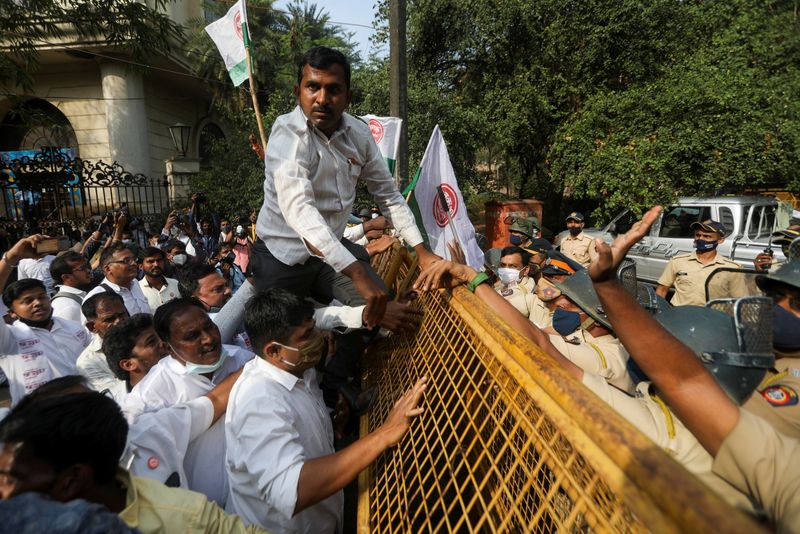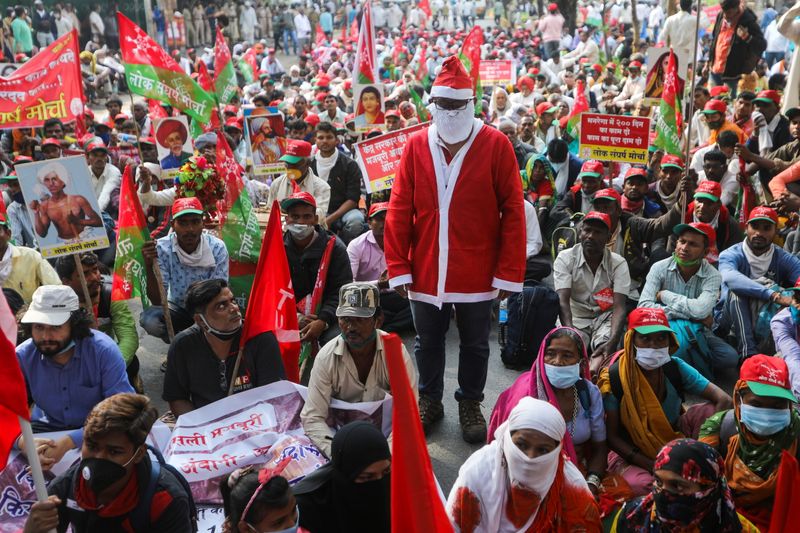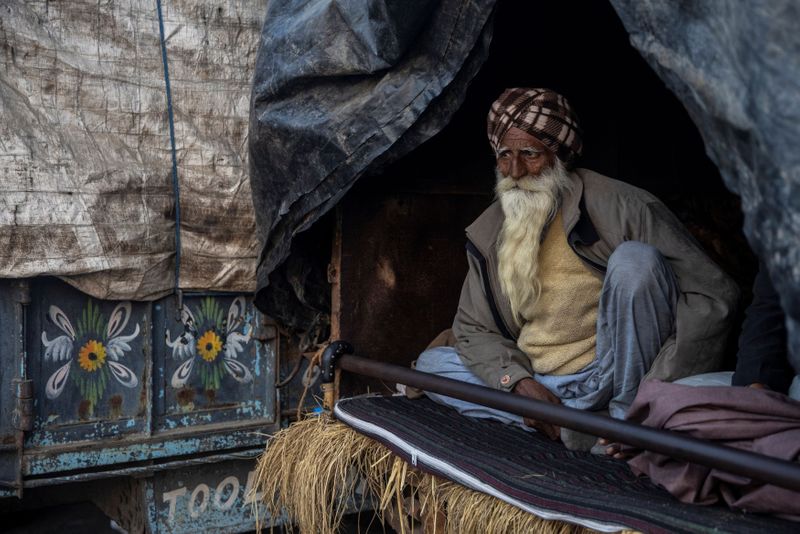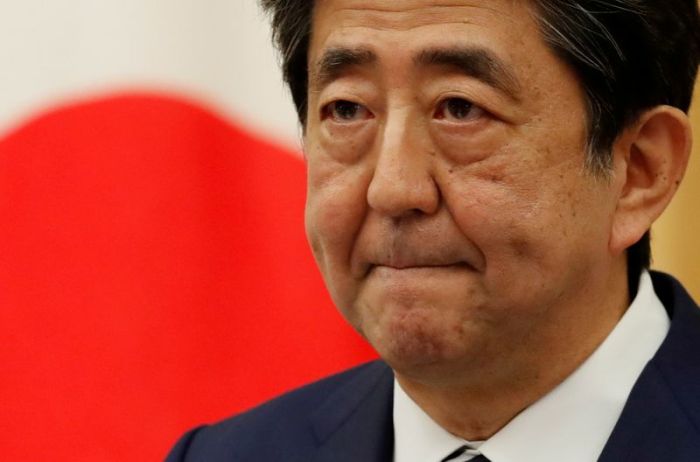NEW DELHI (Reuters) – Indian Prime Minister Narendra Modi’s party said on Tuesday there was no question of the government repealing agriculture laws fiercely opposed by farmers who are worried deregulation will reduce their incomes.
Tens of thousands of protesters have camped out on the outskirts of New Delhi and blocked national highways for over three weeks to protest against India’s biggest farm reforms in decades.
The government says the laws enacted by parliament in September would increase farmers’ income through more private investments.
They aim to link potential bulk buyers, such as WalMart Inc, Reliance Industries Ltd and Adani Enterprises Ltd, directly with farmers, bypassing government-regulated wholesale markets and layers of commission agents.
“There’s no question of repealing from the government’s side. We have ample support from many farmers’ organisations,” Gopal Krishna Agarwal, a spokesman for the Bharatiya Janata Party, told Reuters, for the first time making clear the government’s refusal to back down.
“Without private investments, agriculture income won’t be able to grow,” he said.
Earlier in the day, Agriculture Minister Narendra Singh Tomar appealed to the protesting farmers to hold further talks.
“We assure our farmers that we’ll listen to them with an open mind,” Tomar told foreign journalists.
The government has offered to amend the laws, including by giving a written assurance that the farmers will continue to get a guaranteed minimum price for grains, including rice and wheat at state-controlled wholesale markets. The growers, however, want the laws scrapped.
Their protests have resonated around the world.
Urging India’s diaspora to help the government to convince farmers, Tomar said the policy changes would make agriculture more attractive for farmers.
The protesters have received support from overseas Indians mainly from the state of Punjab, who have organised demonstrations in Australia, Britain, Canada and the United States.
“Farmers have decided they won’t go back till the government takes back all three farm laws,” said Rakesh Tikait, spokesman for Bhartiya Kisan Union, one of over 30 protesting unions of growers.
“It will take more than a month to resolve all issues.”
(Reporting by Mayank Bhardwaj; Writing by Manoj Kumar; Editing by Christian Schmollinger, William Maclean and Barbara Lewis)




























